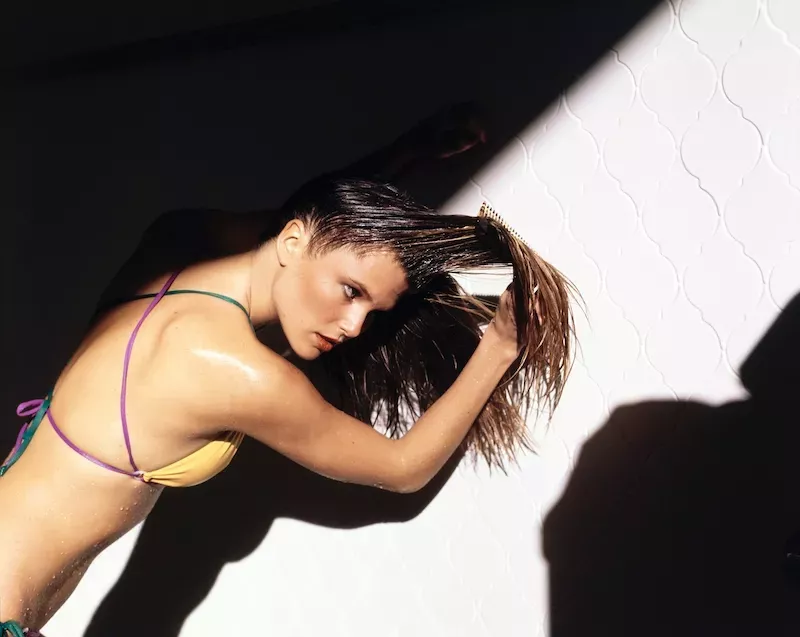Does a healthy scalp mean strong, healthy hair? Since the scalp is skin, it should receive similar care to our facial skin. For hair to grow longer and stronger, it needs a healthy environment to thrive, so neglecting the scalp can have consequences.
Regular shampooing is recommended to effectively remove dead skin cells, sweat, environmental pollutants, and oils that accumulate on its surface. "If you don't wash your hair regularly, these can remain on the scalp, potentially irritating it. When the scalp is unhealthy, the health of the hair is also affected. In fact, dandruff can actually lead to hair loss."
Does diet affect hair growth? A healthy diet is crucial for the health and appearance of your hair, just like it is for your skin. "Protein and complex carbohydrates are key to maintaining a good hair growth cycle," "So make sure to include these two nutrients in your diet. I recommend eating a palm-sized portion of protein at breakfast and lunch, such as fish, eggs, lean meat, beans, and quinoa. These are the most important meals for your hair because that's when energy consumption is highest."
At the same time, don't reduce your carbohydrate intake, as your hair follicles need enough energy to grow. Include a portion of complex carbohydrates in each meal, such as brown rice, whole wheat toast, or oatmeal.
Can supplements promote hair growth? The answer is yes. "As a non-essential tissue, your hair has particularly high nutritional requirements that are difficult to meet through diet alone," "Supplements can be very convenient because they provide easily accessible nutrients for the hair. Ensuring healthy levels of certain minerals can encourage hair growth and help prevent hair breakage."
What are the best supplements for longer, stronger hair? We need six key nutrients to help hair grow longer.
Iron: Studies show that iron deficiency affects nearly 25% of the world's population, and it is essential for healthy hair. "Iron is needed to maintain a healthy growth phase in the hair growth cycle."
Biotin: Helps our body break down proteins, fats, and carbohydrates. A lack of biotin can lead to hair loss.
Zinc and Vitamin B12: "These two are essential for hair, and B12 supplements are particularly important for vegetarians because it is only found in meat." Both help produce and repair new hair cells.
Essential Amino Acids: "Our bodies can't produce amino acids on their own. Amino acids are proteins, and our hair is made of protein, so I really recommend daily protein supplementation to promote hair growth."
Vitamin D: "Vitamin D has a profound impact on the hair growth cycle because each hair follicle contains vitamin D." However, vitamin D deficiency is also very common.
How to prevent hair breakage? "Avoid crash diets or trendy hairstyles." "Restrictive diets deprive your hair of nutrients and energy, both of which can lead to excessive hair loss." Additionally, we recommend avoiding overly tight ponytails (they can cause traction breakage and pull hair out of the follicles).
How should you comb your hair to promote hair growth? Make sure the comb you choose does not damage the outer cuticle layer of the hair, which can make hair prone to damage. Choose combs with rounded plastic edges and cushioned bases, and avoid using boar bristle brushes. Also, never start combing from the roots, as this can cause friction and damage to the roots. Start from the ends and gradually work your way up.
How often should you trim your hair if you want it to grow out? "Trim every three months. This is how we trim the ends without shortening the hair. Follow up with regular strengthening treatments to prevent hair breakage, and always use protective products on your hair when using heated styling tools. I also like using keratin products because they add protein to the hair.

